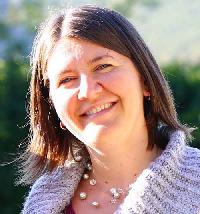| Pages sur ce sujet: [1 2] > | Poll: What role has popular culture (movies, TV, books) played in you learning your acquired language? Auteur du fil: ProZ.com Staff
|
|---|
This forum topic is for the discussion of the poll question "What role has popular culture (movies, TV, books) played in you learning your acquired language?".
View the poll results »
| | | | Simon Bruni 
Royaume-Uni
Local time: 08:42
Membre (2009)
espagnol vers anglais
| Nothing beats real-life communication | May 11, 2012 |
Most of my language learning was done through face-to-face contact with other human beings. The "total immersion" method.
TV and books have always played their part too, but a small one.
| | | | Ty Kendall 
Royaume-Uni
Local time: 08:42
hébreu vers anglais
| Massive role...especially music ♪♫♪ ♪♫♪ | May 11, 2012 |
When I was learning Hebrew my teacher got me to listen to Israeli music, translate lyrics ♪♫♪ , she got me to read children's literature, encouraged me to watch Israeli movies and TV.
It was only after doing these things that I noticed my Hebrew progressing by leaps and bounds. Not only that, but I was actually learning "real" Hebrew, not the anodyne, grammatically prescriptive Hebrew of the coursebooks.
Culture and Language are intertwined, I think it's importan... See more When I was learning Hebrew my teacher got me to listen to Israeli music, translate lyrics ♪♫♪ , she got me to read children's literature, encouraged me to watch Israeli movies and TV.
It was only after doing these things that I noticed my Hebrew progressing by leaps and bounds. Not only that, but I was actually learning "real" Hebrew, not the anodyne, grammatically prescriptive Hebrew of the coursebooks.
Culture and Language are intertwined, I think it's important to not only teach the language, but to teach the culture as well. ▲ Collapse
| | | | | big role...especially music and movies! | May 11, 2012 |
Living in Greece means that all films, TV series etc. have subtitles and you get to hear the actual voice and language of the people involved (wow did I get to appreciate that when I moved to Germany...). As a teenager, I used to listen to music from the US + UK all the time as well as watch movies and read literature. Well, coming to think of it, by reading manga (Jap. cartoon) I came up with the idea to learn Japanese. So, yes pop culture influences us all to a great extent...even though growi... See more Living in Greece means that all films, TV series etc. have subtitles and you get to hear the actual voice and language of the people involved (wow did I get to appreciate that when I moved to Germany...). As a teenager, I used to listen to music from the US + UK all the time as well as watch movies and read literature. Well, coming to think of it, by reading manga (Jap. cartoon) I came up with the idea to learn Japanese. So, yes pop culture influences us all to a great extent...even though growing old sometimes means we ignore it or even disregard it!! For us linguists pop culture even makes the learning process more fun and not so painstaking...so why not include it at schools? Students would learn and be motivated... ▲ Collapse
| | |
|
|
|
Galina F
États-Unis
Local time: 03:42
anglais vers russe
+ ...
| A very important role | May 11, 2012 |
The only reason I wanted to learn English was The Hobbit of Tolkien and my dreams of Ireland (by some reason Hobbit shire reminded me of Ireland). It took years and I still dream about Ireland:)
As for French, it was Charles Aznavour, Mireille Mathieu and Joe Dassin, as well as a dream of a beautiful morning in Paris, hot croissants and coffee in a small cozy cafe...
| | | | Nicole Schnell 
États-Unis
Local time: 00:42
anglais vers allemand
+ ...
In memoriam | Very important | May 11, 2012 |
Listening to music on the radio and record albums was the only way to figure out how English or French words are pronounced properly because the teachers at school are never native speakers of the languages they are teaching and they usually do a great job in teaching kids a nice and thick accent. 
| | | | John Cutler 
Espagne
Local time: 09:42
espagnol vers anglais
+ ...
TV has played a big role. I've learned many scientific terms from watching documentaries in Spanish or Catalan. If I watch TV series, I try to watch national series rather than imported dubbed series because they are cast in a setting of popular culture.
Since I rarely speak English with other native speakers, I also have to admit that watching TV series in the original English has helped me keep my English from getting rusty. ... See more ... See more TV has played a big role. I've learned many scientific terms from watching documentaries in Spanish or Catalan. If I watch TV series, I try to watch national series rather than imported dubbed series because they are cast in a setting of popular culture.
Since I rarely speak English with other native speakers, I also have to admit that watching TV series in the original English has helped me keep my English from getting rusty.
My big regret is that, although I've done a lot of reading of Spanish or Catalan newspapers, I haven't been as diligent about reading novels in those languages. ▲ Collapse
| | | | Mario Chavez (X) 
Local time: 03:42
anglais vers espagnol
+ ...
| English since age 6 | May 11, 2012 |
I attended private schools in Peru (my adoptive country at the time) where I learned the basics of English. What hooked me to the language was my crush on my English teacher (I was 7, heh).
My learning continued in high school, mostly from coursebooks, which, as someone said earlier, can't compare to the real voice and culture from real people. Still, my love for the language grew exponentially and reached a peak when I was 16, when I really wanted to do translations. My otherwise c... See more I attended private schools in Peru (my adoptive country at the time) where I learned the basics of English. What hooked me to the language was my crush on my English teacher (I was 7, heh).
My learning continued in high school, mostly from coursebooks, which, as someone said earlier, can't compare to the real voice and culture from real people. Still, my love for the language grew exponentially and reached a peak when I was 16, when I really wanted to do translations. My otherwise capable English teacher was quite a character: stern, disciplined, thorough...but with funny pronunciations. For example, the car make Buick she would pronounce as baw'EEK, not 'BEEU eek.
Good times.
When I migrated to New York City in late 1990, I knew that my English was too textbookish, so I absorbed all I could from TV shows, popular magazines and movies in English, plus my interactions with shopkeepers, subway personnel, strangers I would ask for directions, deli attendants, etc. Only when one inmmerses in a language like this language learning is possible and enjoyable. You enjoy every little triumph and savor every little achievement. ▲ Collapse
| | |
|
|
|
David Wright 
Autriche
Local time: 09:42
allemand vers anglais
+ ...
I learnt it by moving to the country (Austria) to live and work there. I had learned German at school but it had very little in common with what I encountered in everyday activities. The only way was through the people I met.
| | | | | Very important | May 11, 2012 |
TV played (and still plays) a major role, I watch BBC every day! I also watch more occasionally French, Spanish and Italian TV channels.
| | | |
A big role in learning English, much less in learning German or Russian.
| | | | Interlangue (X)
Angola
Local time: 09:42
anglais vers français
+ ...
| Very important | May 11, 2012 |
I learned English by total immersion, at the age of 17, attending a regular school, living in a host family, watching TV, reading books and magazines, playing games, etc., like any ‘local’ my age.
As an adult, I learned Italian by taking classes here and going to Italy whenever possible (one year all in all) to share the daily life of an Italian family.
I also refreshed my university knowledge of Spanish, by a combination of a targeted course and life in a host family, whi... See more I learned English by total immersion, at the age of 17, attending a regular school, living in a host family, watching TV, reading books and magazines, playing games, etc., like any ‘local’ my age.
As an adult, I learned Italian by taking classes here and going to Italy whenever possible (one year all in all) to share the daily life of an Italian family.
I also refreshed my university knowledge of Spanish, by a combination of a targeted course and life in a host family, which involved TV watching, playing table games, etc.
[Modifié le 2012-05-11 16:59 GMT] ▲ Collapse
| | |
|
|
|
Gudrun Maydorn (X) 
Allemagne
Local time: 09:42
anglais vers allemand
+ ...
| British radio | May 11, 2012 |
I began listening to "children's hour" on the British radio on a daily basis when I was about 12 or 14 and I always had scraps of paper at hand to write down new words.
| | | | Thayenga 
Allemagne
Local time: 09:42
Membre (2009)
anglais vers allemand
+ ...
| A major role | May 11, 2012 |
Especially books, music and movies. All attempts to teach me in English in elementary school failed - which drove my teacher to say that I will never learn English . .
Then came a time when I had a lot of time and started listening to music, mainly to AFN (American Forces Network), writing down the words as they sounded, then looked them up in a dictionary. Every German knows that English is seldom spelled the way it's pronounced... See more
| | | | NataliaAnne 
Brésil
Local time: 05:42
portugais vers anglais
I first started learning Portuguese when I took Brazilian dance classes. It’s normal for teachers around the world to use the Portuguese names and so I would inevitably end up asking ‘What’s frango assado?’, ‘What’s chicote?’ etc and so my first words were a very strange mix (‘roast chicken’, ‘whip’)! My love of Brazilian culture took off from there and, as culture is so entwined with language, that was how I started learning. I had some very funny experiences, too. Dance t... See more I first started learning Portuguese when I took Brazilian dance classes. It’s normal for teachers around the world to use the Portuguese names and so I would inevitably end up asking ‘What’s frango assado?’, ‘What’s chicote?’ etc and so my first words were a very strange mix (‘roast chicken’, ‘whip’)! My love of Brazilian culture took off from there and, as culture is so entwined with language, that was how I started learning. I had some very funny experiences, too. Dance teachers like to lead a move without warning the follower what might be coming up, to check that they’re really following. I remember once a teacher led me into an embrace, pushed my legs out from under me, threw me into the air and yelled ‘larga!’ Well, I still didn’t speak Portuguese and had no idea that he’d told me to let go, so I kept my arms around him and we both subsequently ended up on the floor. Well, the whole class collapsed in hysterics and I very quickly learnt the word! ▲ Collapse
| | | | | Pages sur ce sujet: [1 2] > | To report site rules violations or get help, contact a site moderator: You can also contact site staff by submitting a support request » Poll: What role has popular culture (movies, TV, books) played in you learning your acquired language? | TM-Town | Manage your TMs and Terms ... and boost your translation business
Are you ready for something fresh in the industry? TM-Town is a unique new site for you -- the freelance translator -- to store, manage and share translation memories (TMs) and glossaries...and potentially meet new clients on the basis of your prior work.
More info » |
| | Anycount & Translation Office 3000 | Translation Office 3000
Translation Office 3000 is an advanced accounting tool for freelance translators and small agencies. TO3000 easily and seamlessly integrates with the business life of professional freelance translators.
More info » |
|
| | | | X Sign in to your ProZ.com account... | | | | | |
















